
Enchanting Harz Mountains: Germany's Hidden Gem
Nestled in the heart of Germany, the Harz Mountains beckon travelers with their lush forests, medieval towns, and enchanting folklore. This region seamlessly blends natural beauty with a rich cultural heritage, offering a unique experience for every visitor. The Harz Mountains are home to the Brocken, the highest peak in Northern Germany, which offers panoramic views that stretch for miles. Hike through the dense woodlands, discover hidden waterfalls, and explore the diverse flora and fauna that make this area a haven for nature lovers. The region is crisscrossed with well-marked trails suitable for all levels of hikers. History enthusiasts will find themselves captivated by the medieval towns scattered throughout the Harz. Quedlinburg, a UNESCO World Heritage site, boasts half-timbered houses and cobblestone streets that transport you back in time. Wernigerode Castle, perched on a hill, offers a glimpse into the opulent lifestyle of the German nobility. The Harz Mountains are also steeped in legend and folklore. The Brocken is famously associated with the witches' sabbath in Goethe’s “Faust,” and the Walpurgis Night celebrations here are nothing short of magical. Local festivals, traditional music, and hearty cuisine add to the cultural richness of the region.
Local tips in Harz Mountains
- Visit Quedlinburg early in the morning to avoid the crowds and get the best photos.
- Bring sturdy hiking boots as the trails can be rugged and uneven.
- Check the weather forecast before heading to the Brocken; it can be quite unpredictable.
- Attend the Walpurgis Night festivities if visiting in late April for a unique cultural experience.
- Try the local cuisine, especially the Harzer cheese and the various game dishes.
Enchanting Harz Mountains: Germany's Hidden Gem
Nestled in the heart of Germany, the Harz Mountains beckon travelers with their lush forests, medieval towns, and enchanting folklore. This region seamlessly blends natural beauty with a rich cultural heritage, offering a unique experience for every visitor. The Harz Mountains are home to the Brocken, the highest peak in Northern Germany, which offers panoramic views that stretch for miles. Hike through the dense woodlands, discover hidden waterfalls, and explore the diverse flora and fauna that make this area a haven for nature lovers. The region is crisscrossed with well-marked trails suitable for all levels of hikers. History enthusiasts will find themselves captivated by the medieval towns scattered throughout the Harz. Quedlinburg, a UNESCO World Heritage site, boasts half-timbered houses and cobblestone streets that transport you back in time. Wernigerode Castle, perched on a hill, offers a glimpse into the opulent lifestyle of the German nobility. The Harz Mountains are also steeped in legend and folklore. The Brocken is famously associated with the witches' sabbath in Goethe’s “Faust,” and the Walpurgis Night celebrations here are nothing short of magical. Local festivals, traditional music, and hearty cuisine add to the cultural richness of the region.
When is the best time to go to Harz Mountains?
Iconic landmarks you can’t miss
Harz National Park
Discover Germany's legendary mountain wilderness: Hike through ancient forests, explore mystical moors, and ascend the Brocken peak in Harz National Park.
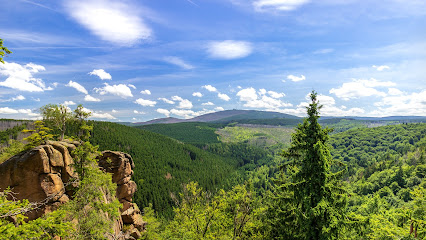
Hahnenklee Crags
Discover the breathtaking Hahnenklee Crags in the Harz Mountains: panoramic views, diverse hiking trails, and a tranquil escape into nature's splendor await in this German natural landmark.
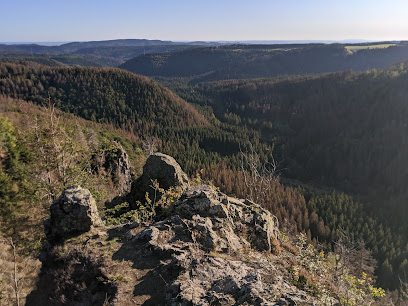
Nationalparkhaus Schierke
Explore the breathtaking landscapes, rich biodiversity, and outdoor adventures at Nationalparkhaus Schierke in the heart of Harz National Park.
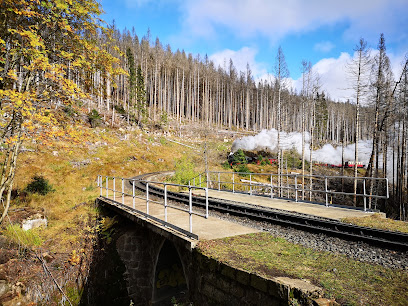
Ring der Erinnerung
Reflect on German history and the cycle of life at the Ring der Erinnerung, a land art memorial on the former East-West border near Sorge in the Harz Mountains, offering a poignant and contemplative experience.
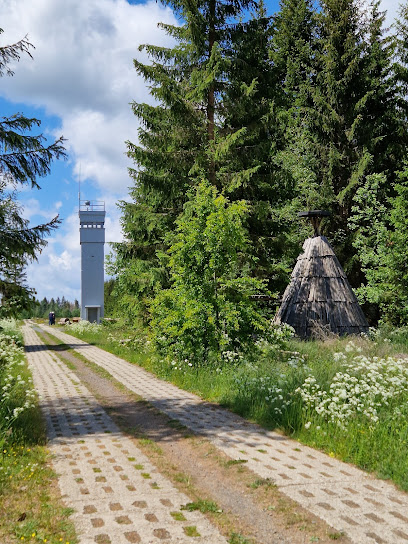
Trudenstein
Hike to the summit of Trudenstein in the Harz Mountains for panoramic views and a touch of local folklore, easily accessible from Drei Annen Hohne and Schierke.
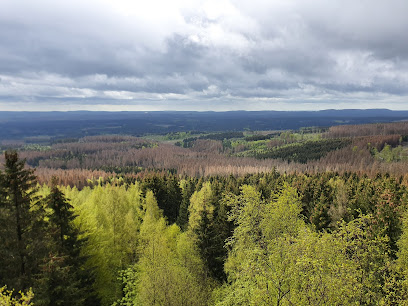
Oberer Bodewasserfall
Explore the breathtaking Oberer Bodewasserfall in Braunlage, a stunning natural waterfall that captivates with its serene beauty and outdoor adventures.
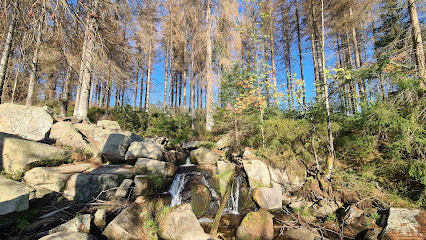
Luchs Denkmal Torfhausmoor
Commemorating the successful lynx reintroduction in Harz National Park, this monument offers reflection on wildlife conservation amidst the serene Torfhausmoor landscape.
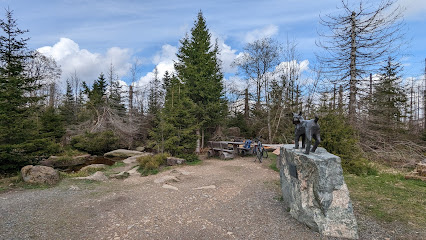
Aussichtsturm Wurmberg
Experience breathtaking panoramic views from the Aussichtsturm Wurmberg, the highest peak in Lower Saxony, offering year-round adventures and stunning natural beauty in the heart of the Harz Mountains.
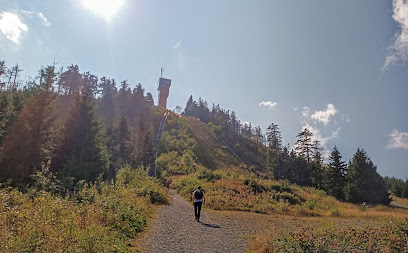
Kramershai
Discover Kramershai State Park in Elend, a natural haven in the Harz Mountains offering scenic hiking trails, diverse ecosystems, and tranquil escapes for nature lovers.
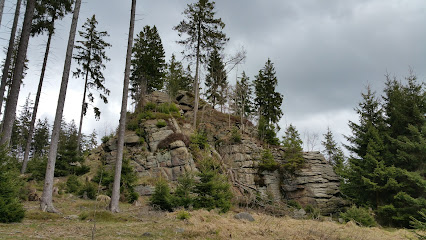
Teufelskanzel
Discover the Teufelskanzel, a legendary rock formation on the Brocken in the Harz Mountains, steeped in folklore and offering breathtaking views, perfect for hikers and nature enthusiasts.
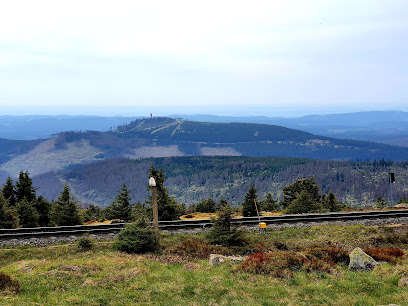
Bockberg
Discover Bockberg, a serene nature preserve near Elbingerode in the Harz Mountains, offering hiking, panoramic views, and a tranquil escape into nature's heartland.
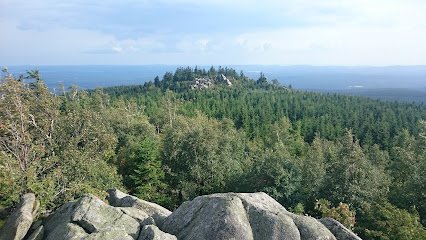
Harz
Explore the mystical Harz Mountains: Hike through ancient forests, discover medieval towns, and uncover legends in Germany's enchanting northern highlands.
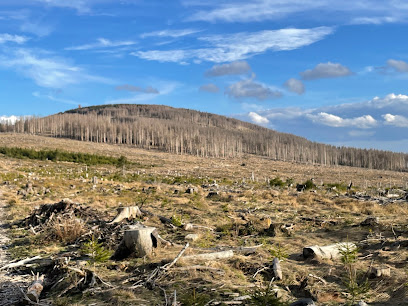
Alter Grenzweg
Hike a poignant path through history on the Alter Grenzweg near Wernigerode, where the former East-West German border now thrives as a Green Belt.
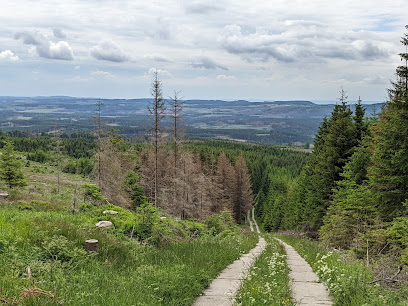
Scherstorklippen
Discover the majestic Scherstorklippen, a stunning granite tor formation in the Harz Mountains, offering panoramic views, unique hiking trails, and a glimpse into the region's rich natural history.
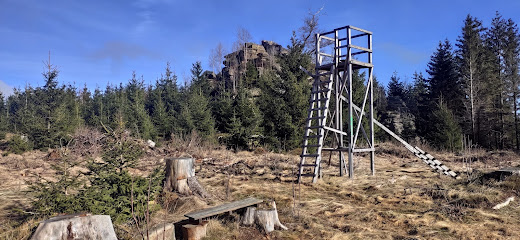
Wurmberg-Steinbruch (Vogelschutzgebiet)
Discover the serene beauty of Wurmberg-Steinbruch near Braunlage, a reclaimed quarry turned bird sanctuary, offering a tranquil escape into nature in the Harz.
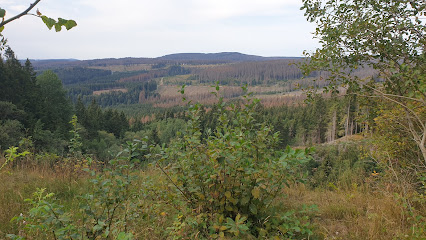
Unmissable attractions to see
Wernigerode Castle
Discover the enchanting Wernigerode Castle, a historical gem in the Harz Mountains offering breathtaking views and fascinating exhibits.
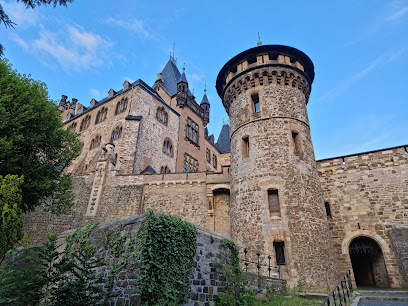
Harz National Park
Explore breathtaking landscapes and rich wildlife at Harz National Park, Germany's premier destination for nature lovers and outdoor adventures.
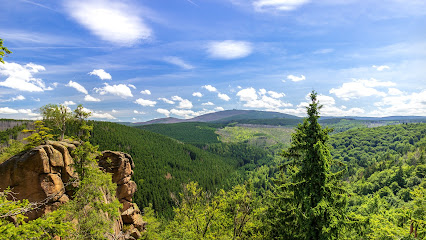
Imperial Palace of Goslar
Explore the Imperial Palace of Goslar, a UNESCO World Heritage site showcasing medieval architecture and the rich history of the Holy Roman Empire.
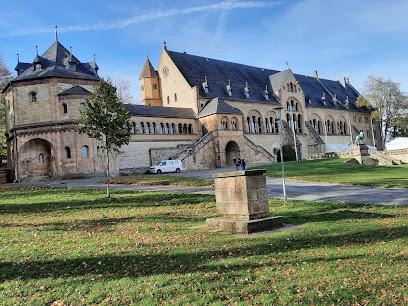
Wurmberg Gondola Lift
Experience the breathtaking heights of the Harz Mountains at the Wurmberg Gondola Lift, offering stunning views, skiing, and hiking adventures.
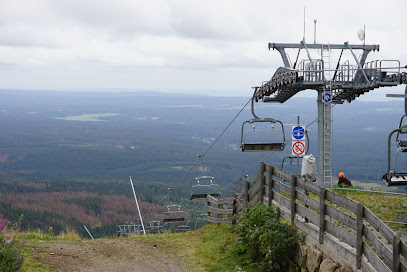
Marktplatz
Experience the enchanting Marktplatz in Quedlinburg, a UNESCO World Heritage site filled with rich history and charming medieval architecture.
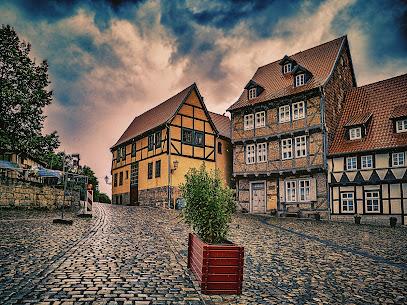
Brocken Coaster Thomas mask
Discover the exhilarating Brocken Coaster, a thrilling summer toboggan run offering stunning views of the Harz Mountains for all adventure seekers.
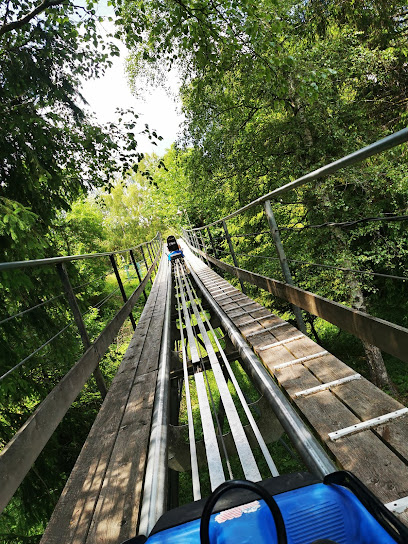
Schlossmuseum Quedlinburg
Explore the rich history and stunning views at Schlossmuseum Quedlinburg, a captivating castle and museum in the heart of Germany's picturesque landscape.
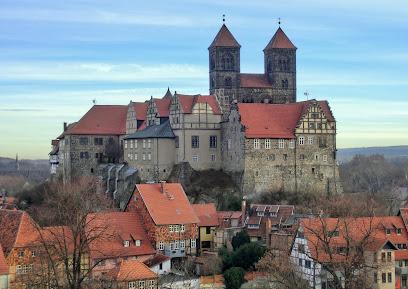
Hermannshöhle - Rübeländer caves
Explore the breathtaking Hermannshöhle - Rübeländer Caves, where nature's stunning rock formations create an unforgettable underground adventure in the Harz Mountains.
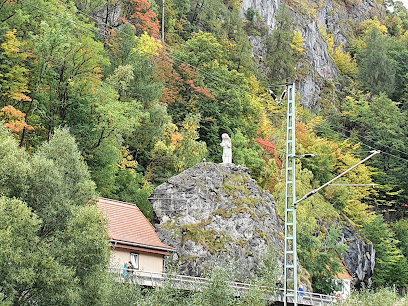
Stiftskirche St. Servatius
Explore the stunning Stiftskirche St. Servatius, a Romanesque architectural marvel steeped in history in the heart of Quedlinburg.
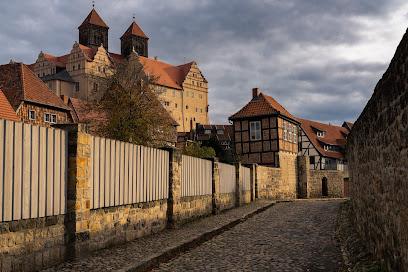
Eckertalsperre
Discover the enchanting beauty of Eckertalsperre, a serene reservoir in the Harz Mountains perfect for outdoor adventures and peaceful retreats.
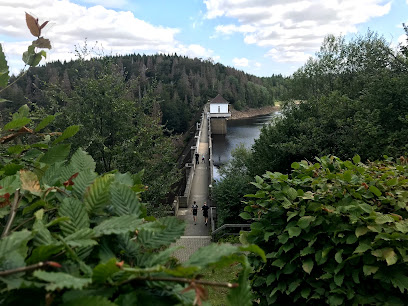
Kurpark Schierke
Explore the enchanting Kurpark Schierke in the Harz Mountains, a stunning state park perfect for nature lovers and outdoor enthusiasts.
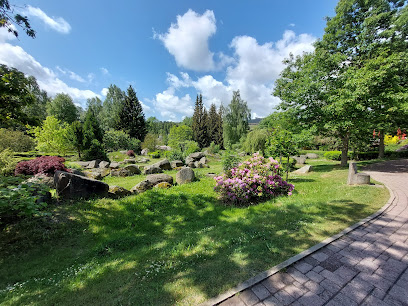
Hahnenklee Crags
Discover the natural beauty of Hahnenklee Crags, a premier hiking destination in St. Andreasberg, Germany, perfect for outdoor enthusiasts and nature lovers.
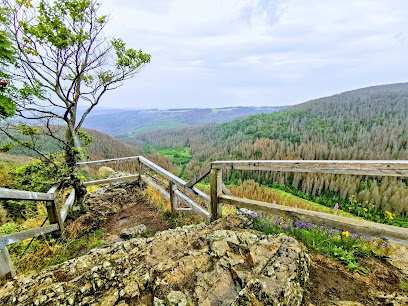
Nationalparkhaus Schierke
Explore the stunning landscapes and rich biodiversity of the Harz Mountains at Nationalparkhaus Schierke, your gateway to adventure and tranquility.
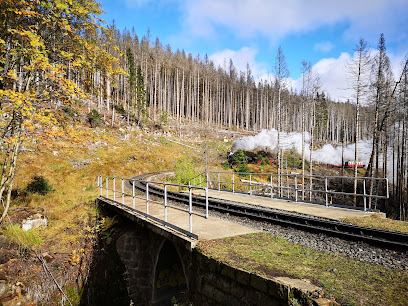
Froschfelsen HWN 5
Explore Froschfelsen: A Scenic Gem in Ilsenburg, Perfect for Nature Lovers and Adventure Seekers.
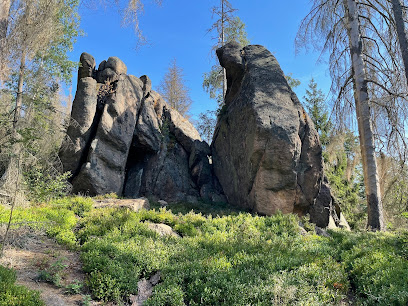
Eichhörnchenbrunnen
Discover the enchanting Eichhörnchenbrunnen in Braunlage, a picturesque fountain surrounded by nature, perfect for relaxation and memorable moments.
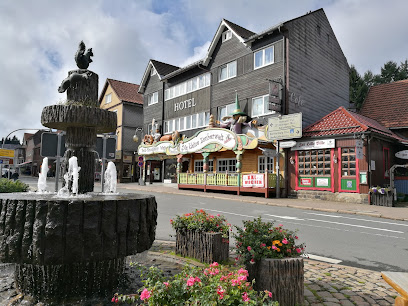
Essential places to dine
Hexenritt Schirmbar
Experience authentic Bavarian cuisine at Hexenritt Schirmbar – where nature meets tradition in Braunlage's beautiful landscape.
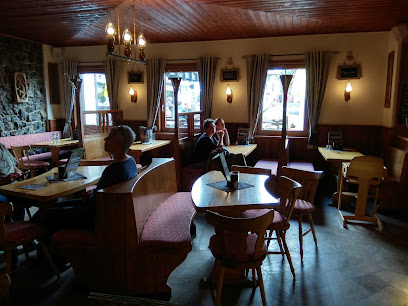
Harz Hotel Altes Forsthaus Braunlage
Discover comfort and culinary delights at Harz Hotel Altes Forsthaus Braunlage - your gateway to exploring the enchanting Harz mountains.

Harz-Heimat
Savor authentic German cuisine at Harz-Heimat Bistro in Braunlage - where tradition meets taste amidst stunning landscapes.
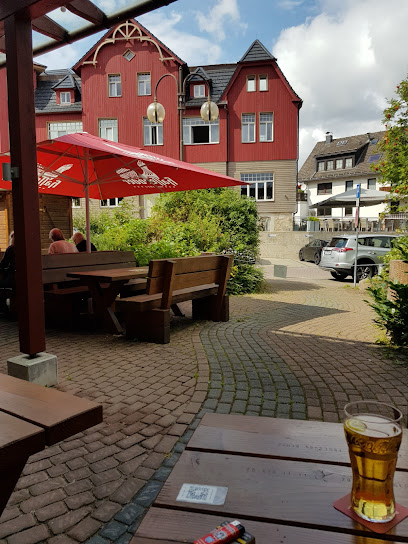
Montevino Vin'Osteria
Discover the best breakfast and pizza experience in Wernigerode at Montevino Vin'Osteria.
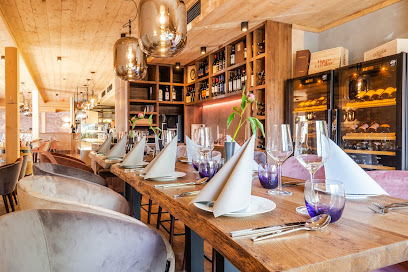
Café am Kurpark
Discover authentic German cuisine at Café am Kurpark in Wernigerode—your perfect spot for relaxation amidst beautiful park scenery.
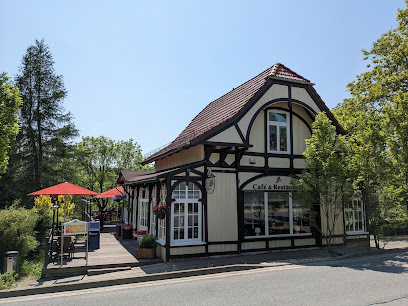
Gasthaus Zur Klippe Schierke
Experience authentic German cuisine at Gasthaus Zur Klippe Schierke amidst stunning natural beauty in the Harz region.
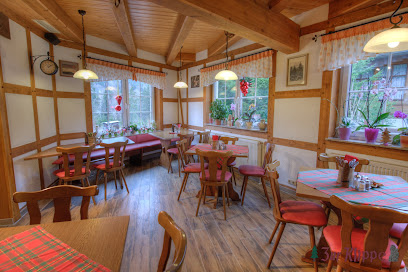
Restaurant Luis
Experience authentic German cuisine in the heart of Schierke at Restaurant Luis – where flavors meet tradition amidst stunning landscapes.
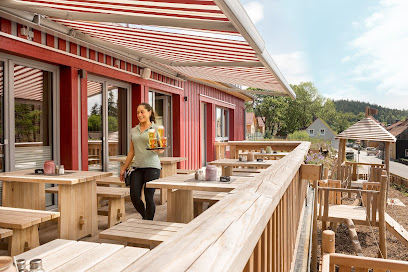
Tenne Schwof & Schmaus Am Blueberry Hill
Discover the flavors of Braunlage at Tenne Schwof & Schmaus Am Blueberry Hill—where culinary tradition meets modern dining in a stunning setting.
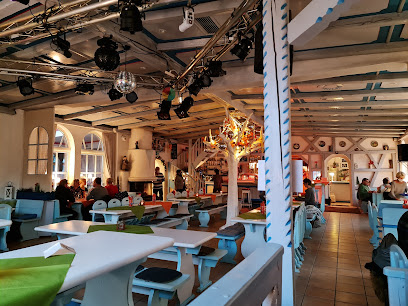
Moni's Hexenhäuschen
Experience the enchanting flavors at Moni's Hexenhäuschen in Braunlage - where fresh fish meets fruity delights in a magical setting.
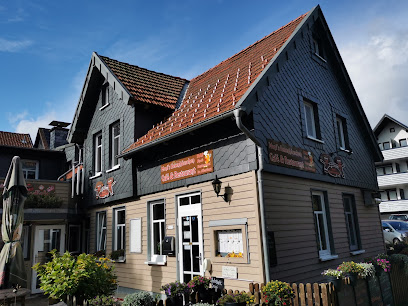
Kleine Auszeit
Discover authentic German flavors at Kleine Auszeit in Braunlage – where cozy ambiance meets delightful cuisine.
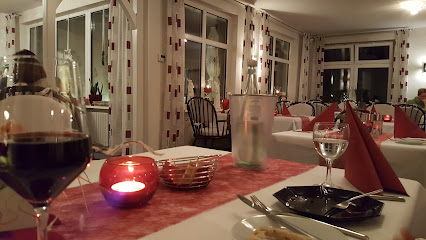
Hotel Zur Erholung
Experience comfort and adventure at Hotel Zur Erholung in Braunlage – your gateway to exploring Germany's enchanting Harz mountains.
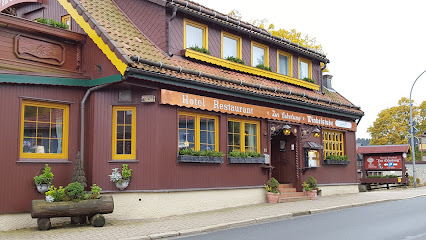
Hexenritt Alm
Discover Hexenritt Alm: A delightful restaurant offering traditional German cuisine and stunning mountain views in Braunlage.
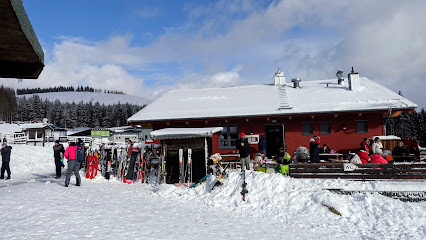
DasVielleicht
Discover exquisite flavors at DasVielleicht in Braunlage - where tradition meets modern culinary art in a cozy setting.
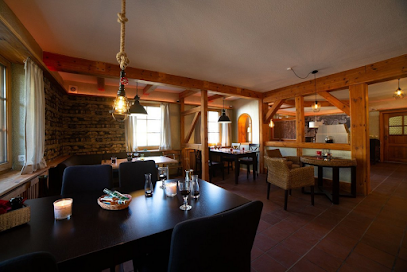
Markets, malls and hidden boutiques
Wernigerode Castle
Explore Wernigerode Castle, a stunning medieval fortress offering breathtaking views, rich history, and beautiful hiking trails in the Harz Mountains.
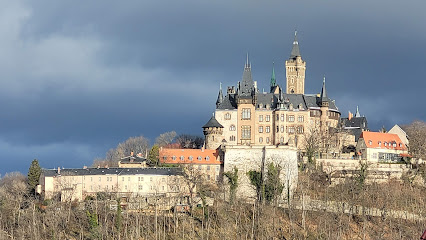
Hexentanzplatz Thale
Discover the mystical Hexentanzplatz Thale, a stunning hiking area rich in folklore and breathtaking natural beauty in the heart of the Harz Mountains.
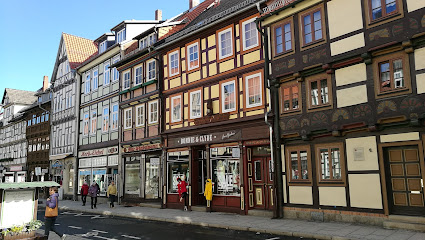
Landschaftsschutzgebiet Harz und südliches Harzvorland
Explore Harz Nature Preserve for breathtaking landscapes, diverse wildlife, and unforgettable outdoor adventures in Germany's natural paradise.
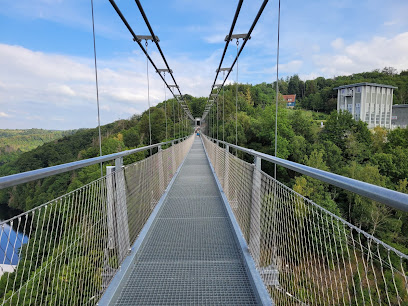
Harz National Park
Experience the breathtaking beauty and diverse wildlife of Harz National Park, a premier destination for nature lovers and outdoor enthusiasts in Germany.
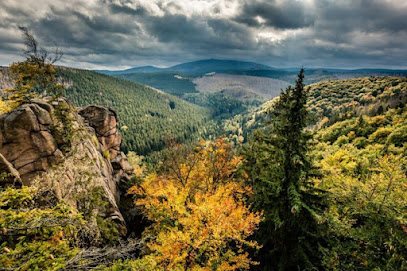
Nordharz Center
Explore the Nordharz Center in Blankenburg: A vibrant shopping mall offering diverse retail, dining, and entertainment experiences in the heart of the Harz mountains.
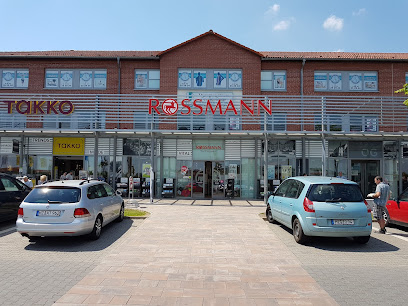
Altstadt-Passagen
Experience the perfect blend of shopping, dining, and culture at Altstadt-Passagen in Wernigerode, a unique German shopping destination.
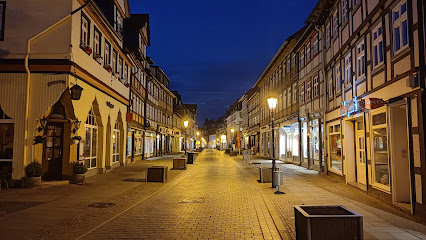
Harz
Explore the enchanting Harz Mountain Range, where stunning landscapes and rich history come together for an unforgettable adventure.
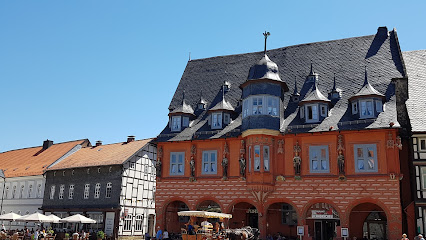
Obere Ilsefälle
Explore the stunning waterfalls and scenic trails of Obere Ilsefälle in the Harz region, a must-visit destination for nature lovers.
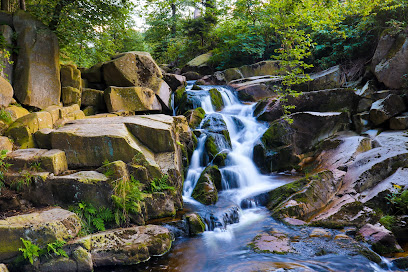
Drei Annen Hohne
Discover the enchanting Harz Mountains from Drei Annen Hohne, a picturesque train station perfect for outdoor adventures and scenic exploration.
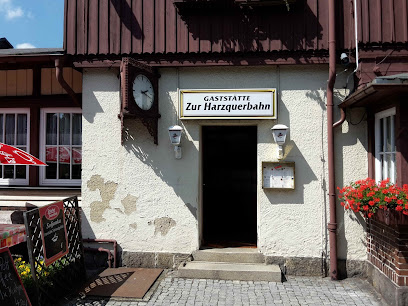
Eckartsberg Fair & Organic Fashion
Discover eco-friendly fashion at Eckartsberg Fair & Organic Fashion in Braunlage, where style meets sustainability in a charming shopping experience.
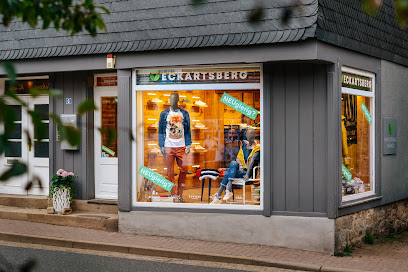
HARZ Regioshop & Kulturhalle
Explore the enchanting HARZ Regioshop & Kulturhalle for unique gifts and cultural treasures in the heart of the Harz mountains.
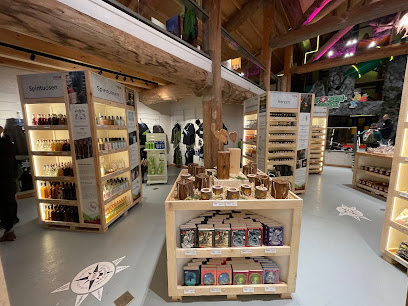
Harzsneaks
Explore local fashion at Harzsneaks in Braunlage – a must-visit clothing store for stylish apparel and unique souvenirs.
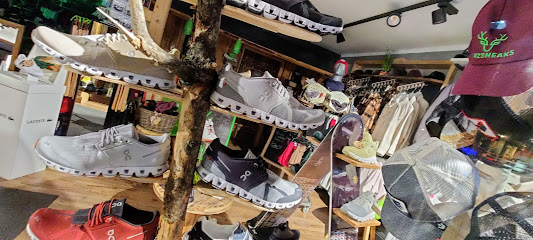
Harzgeflüster Ina Kunze
Discover the magic of Harzgeflüster in Südharz - a treasure trove of authentic souvenirs that celebrate the beauty and culture of the Harz region.
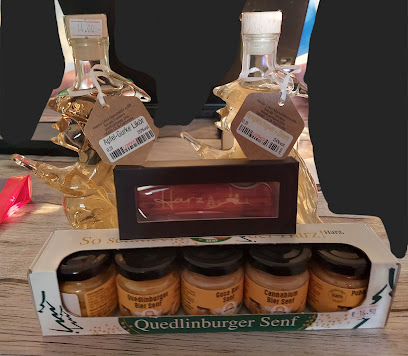
Kö-Bogen Düsseldorf
Experience the best of fashion at Kö-Bogen Düsseldorf, where style meets sophistication in a stunning architectural setting.
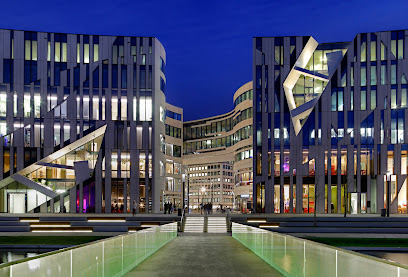
Bruckmaier Luxury Goods
Explore Bruckmaier Luxury Goods, where exquisite handbags meet exceptional service in a stylish atmosphere, perfect for the discerning traveler.

Essential bars & hidden hideouts
JASPER Grill Bar & Lounge / Club
Immerse yourself in the vibrant atmosphere of JASPER Grill Bar & Lounge, where delicious food meets lively nightlife in Braunlage.
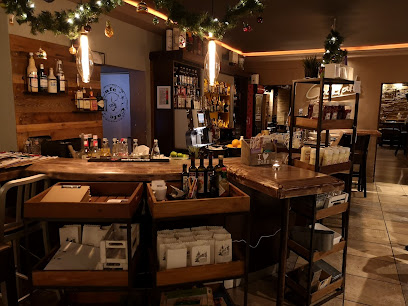
Karthi‘s
Discover the heart of Braunlage dining at Karthi's, where every meal is a flavorful journey through the best grill specialties.
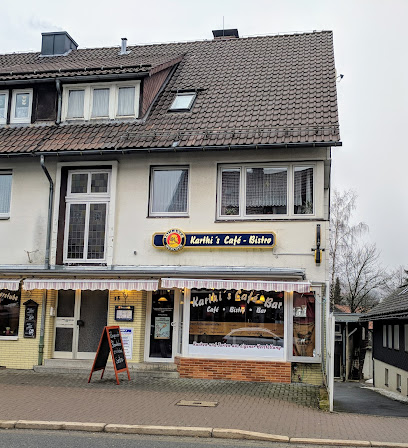
Tenne Schwof & Schmaus Am Blueberry Hill
Discover the lively Tenne Schwof & Schmaus Am Blueberry Hill, where delicious food meets vibrant atmosphere in the heart of Braunlage.
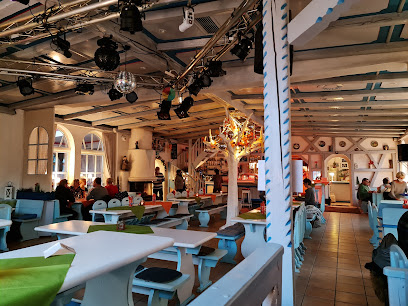
HaiLive Cocktailbar
Experience the vibrant nightlife of Wernigerode at HaiLive Cocktailbar, where expertly crafted cocktails meet a lively atmosphere perfect for unwinding.
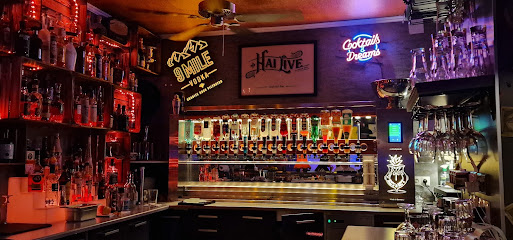
Zum Harzer Roller
Experience the authentic flavors of the Harz region at Zum Harzer Roller, a cozy restaurant in Braunlage offering traditional German cuisine.
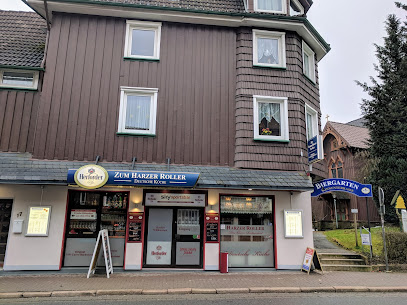
5th Rock Avenue
Experience the vibrant nightlife at 5th Rock Avenue, where locals and tourists come together to enjoy craft cocktails and a lively atmosphere in Bad Lauterberg.
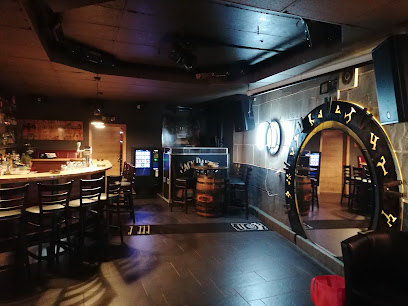
Almhütte
Discover the charm of Almhütte, a cozy bar in Bad Lauterberg, perfect for unwinding with drinks in the scenic Harz region.
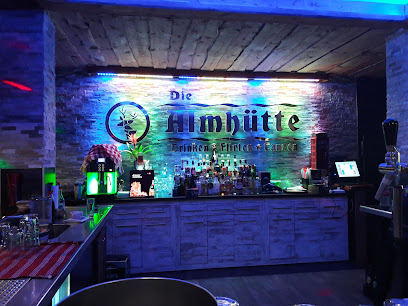
Hille-Bille Inh.A. Brunnen
Experience the charming atmosphere and delicious cuisine at Hille-Bille Inh.A. Brunnen, a top gastropub in Braunlage, perfect for relaxation after adventure.
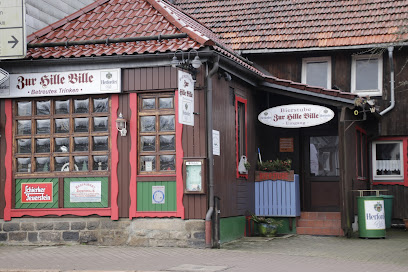
Kneipchen
Discover Kneipchen in Ilsenburg: a cozy pub offering a delightful selection of local beers and hearty German cuisine in a warm and inviting atmosphere.
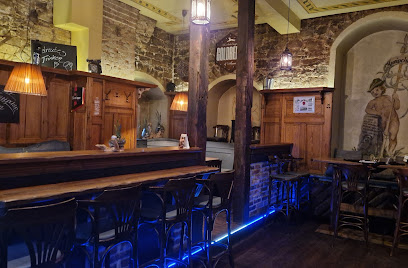
Bierchen Bierchen - die gemütliche Bergkneipe
Discover the charm of Bierchen Bierchen, a cozy mountain pub in Sankt Andreasberg, offering local brews and hearty German fare in a warm atmosphere.
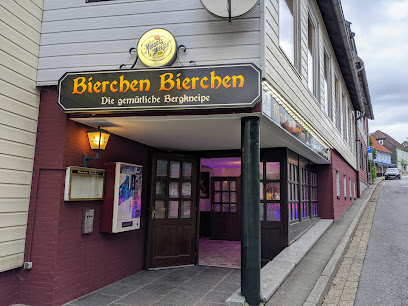
John's Bar
Experience the warm ambiance and delightful drinks at John's Bar in Braunlage - your perfect retreat after exploring the Harz mountains.
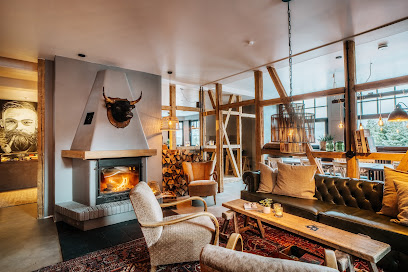
Drink'A'Bell Pub und Café
Discover the heart of Braunlage at Drink'A'Bell Pub und Café, where live music, delicious food, and a warm atmosphere await you.
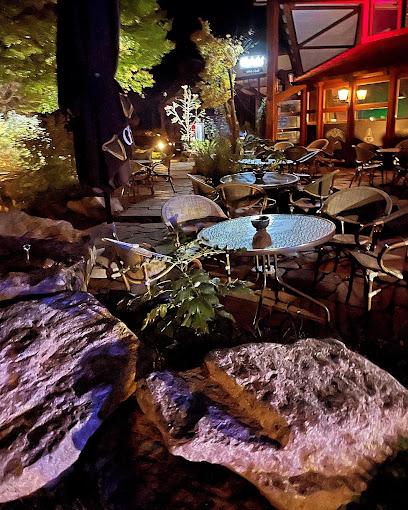
Schirmbar Hexenritt
Discover the lively atmosphere of Schirmbar Hexenritt in Braunlage, where local culture meets refreshing drinks and great company.
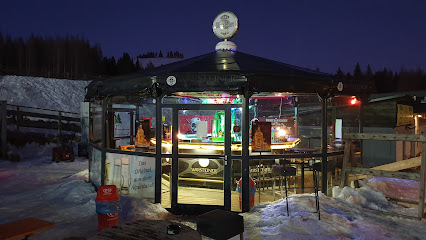
The VALHALLA Bar
Discover the charm of The VALHALLA Bar in Braunlage, where friendly service and a cozy atmosphere await you amidst stunning natural beauty.
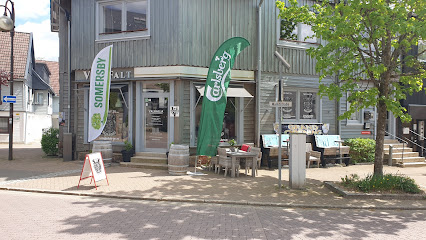
Local Phrases about Harz Mountains
-
- HelloHallo
[HAH-loh] - GoodbyeAuf Wiedersehen
[owf VEE-duh-zay-en] - YesJa
[yah] - NoNein
[nine] - Please/You're welcomeBitte
[BIT-teh] - Thank youDanke
[DAHN-keh] - Excuse me/SorryEntschuldigung
[ent-SHOOL-dee-goong] - How are you?Wie geht es dir?
[vee geh-t ess deer] - Fine. And you?Gut. Und dir?
[goot oont deer] - Do you speak English?Sprechen Sie Englisch?
[SHPRE-khen zee ENG-lish] - I don't understandIch verstehe nicht
[ikh fer-SHTAY-eh nikht]
- HelloHallo
-
- I'd like to see the menu, pleaseIch möchte bitte die Speisekarte sehen
[ikh MERKH-teh BIT-teh dee SHPY-suh-kahr-teh ZAY-en] - I don't eat meatIch esse kein Fleisch
[ikh ESS-eh kine FLYSH] - Cheers!Prost!
[prohst] - I would like to pay, pleaseIch möchte bitte bezahlen
[ikh MERKHT-eh BIT-teh beh-ZAH-len]
- I'd like to see the menu, pleaseIch möchte bitte die Speisekarte sehen
-
- Help!Hilfe!
[HEEL-feh] - Go away!Geh weg!
[geh vehg] - Call the Police!Rufen Sie die Polizei!
[ROO-fen zee dee poh-lee-TSY] - Call a doctor!Rufen Sie einen Arzt!
[ROO-fen zee EY-nen ahrts] - I'm lostIch habe mich verirrt
[ikh HAH-beh meesh feh-REERT] - I'm illIch bin krank
[ikh been kronk]
- Help!Hilfe!
-
- I'd like to buy...Ich möchte...
[ikh MERKHT-eh] - I'm just lookingIch schaue nur
[ikh SHOW-eh noor] - How much is it?Wie viel kostet es?
[vee feel KOHS-teht ess] - That's too expensiveDas ist zu teuer
[dahs ist tsoo TOO-er] - Can you lower the price?Können Sie den Preis senken?
[KERN-en zee den prize ZEN-ken]
- I'd like to buy...Ich möchte...
-
- What time is it?Wie spät ist es?
[vee shpeht ist ess] - It's one o'clockEs ist ein Uhr
[ess ist ighn oor] - Half past (10)Halb zehn
[hahlp tsayn] - MorningMorgen
[MOR-gen] - AfternoonNachmittag
[NAKH-mit-tahk] - EveningAbend
[AH-bent] - YesterdayGestern
[GEHS-tern] - TodayHeute
[HOY-teh] - TomorrowMorgen
[MOR-gen] - 1Eins
[īns] - 2Zwei
[tsvī] - 3Drei
[drī] - 4Vier
[fēr] - 5Fünf
[foonf] - 6Sechs
[zeks] - 7Sieben
[zee-ben] - 8Acht
[ahkt] - 9Neun
[noyn] - 10Zehn
[tsayn]
- What time is it?Wie spät ist es?
-
- Where's a/the...?Wo ist ein/der...?
[voh ist ighn/dehr] - What's the address?Was ist die Adresse?
[vahs ist dee ah-dreh-suh] - Can you show me (on the map)?Können Sie mir zeigen (auf der Karte)?
[KERN-en zee meer tsee-gen (ouf dehr KAHR-teh)] - When's the next (bus)?Wann kommt der nächste (Bus)?
[vahn kohmt dehr NEKH-steh (booss)] - A ticket (to ....)Eine Fahrkarte (nach ....)
[IGH-ne fahr-KAR-teh (nahkh ....)]
- Where's a/the...?Wo ist ein/der...?
History of Harz Mountains
-
The Brocken, also known as the Blocksberg, is the highest peak in the Harz Mountains and steeped in legend. It has long been associated with witches and magic, famously appearing in Goethe's 'Faust' as the site of Walpurgis Night. The Brocken has been a place of mystical significance since at least the medieval period, and its eerie mists and winds have perpetuated its otherworldly reputation.
-
The Harz Mountains are rich in mineral resources, and mining has been a vital part of the region's history. As early as the 10th century, mining for silver, copper, lead, and iron ore began, shaping the economy and culture of the area. The Rammelsberg Mine in Goslar, a UNESCO World Heritage site, showcases this legacy with its preserved mining equipment and extensive tunnels.
-
The town of Goslar, located on the northwestern edge of the Harz Mountains, emerged as a significant center during the medieval period due to its wealth from silver mining. Founded in 922 AD, Goslar became an Imperial City of the Holy Roman Empire. The Imperial Palace (Kaiserpfalz) and the historic old town, both UNESCO World Heritage Sites, reflect the town's rich history and architectural splendor.
-
The Harz region was a hotspot for witch hunts during the 16th and 17th centuries. The town of Quedlinburg saw numerous witch trials, where many women were accused of witchcraft and executed. The fear and superstition surrounding witches reached a peak during this period, leaving a dark mark on the area's history.
-
During the Cold War, the Harz Mountains were situated along the border between East and West Germany. The Brocken summit was used as a listening post by the East German Stasi and the Soviet KGB, making it a focal point of espionage activities. The region was heavily monitored and fortified, with restricted access to many areas. After reunification, the former border has become a route for hiking and remembrance.
-
The Harzer Wandernadel is a popular hiking badge system established in the Harz Mountains. Introduced in 2005, it encourages outdoor enthusiasts to explore the region's trails, visiting checkpoints and collecting stamps along the way. The network of trails and checkpoints highlights the natural beauty and historical significance of the Harz Mountains, promoting both tourism and heritage preservation.
-
Established in 1990, Harz National Park is a protected area that covers large portions of the Harz Mountains. The park aims to preserve the unique natural environment, including dense forests, moorlands, and diverse wildlife. It is also home to the rare Eurasian lynx, which was reintroduced to the region. The park offers numerous recreational opportunities, including hiking, bird-watching, and educational programs that highlight the ecological and cultural importance of the Harz Mountains.
Harz Mountains Essentials
-
The Harz Mountains are centrally located in Germany, making them accessible from several major cities. The nearest airports are Hannover (HAJ) and Leipzig/Halle (LEJ), both of which are approximately 1.5 to 2 hours away by car. From these airports, you can rent a car or take a train to towns like Goslar, Wernigerode, or Bad Harzburg, which serve as gateways to the Harz region. The German railway system (Deutsche Bahn) offers direct connections from cities such as Berlin, Hamburg, and Frankfurt.
-
Within the Harz region, you can choose from several modes of transportation. The Harz Narrow Gauge Railways (Harzer Schmalspurbahnen) are a popular way to explore the area, especially the Brocken mountain. Local buses connect most towns and villages. Renting a car provides the most flexibility, especially for reaching more remote areas. Biking is also an excellent option, with many dedicated trails available.
-
Germany uses the Euro (EUR) as its currency. Credit and debit cards are widely accepted in cities and larger towns, but it’s advisable to carry some cash, especially in smaller villages and rural areas where card payment facilities may be limited. ATMs are readily available in most towns. Always inform your bank of your travel plans to avoid any issues with card usage.
-
The Harz Mountains are generally safe for tourists. Standard precautions apply: avoid leaving valuables in plain sight, especially in parked cars, and be cautious when walking alone at night in unfamiliar areas. There are no specific high-crime neighborhoods targeting tourists, but it's always wise to stay alert.
-
In case of an emergency, dial 112 for immediate assistance. This number connects you to police, fire, and medical emergency services. Hospitals and clinics are available in larger towns like Goslar and Wernigerode. Pharmacies are common, but it’s advisable to bring any prescription medications you may need. It’s also recommended to have travel insurance that covers medical emergencies.
-
Fashion: Do dress in layers, as weather can change rapidly in the mountains. Wear sturdy shoes for hiking. Religion: Do be respectful when visiting religious sites, and dress modestly inside churches. Public Transport: Do validate your ticket before boarding trains and buses. Don’t be loud or disruptive. Greetings: Do greet people with a handshake. A polite 'Guten Tag' (Good day) is appreciated. Eating & Drinking: Do try local dishes like Harzer cheese and regional beers. Don’t tip excessively; around 5-10% is customary.
-
To experience the Harz Mountains like a local, visit during the shoulder seasons (spring and autumn) when the area is less crowded. Participate in local festivals such as the Walpurgis Night celebrations. Explore lesser-known trails and small villages to get a true sense of the region's charm. Engage with locals, who are often willing to share stories and tips about their favorite spots.
Trending Landmarks in Harz Mountains
Nearby Cities to Harz Mountains
-
Things To Do in Hannover
-
Things To Do in Leipzig
-
Things To Do in Potsdam
-
Things To Do in Bremen
-
Things To Do in Hamburg
-
Things To Do in Berlin
-
Things To Do in Munster
-
Things To Do in Wurzburg
-
Things To Do in Frankfurt
-
Things To Do in Dresden
-
Things To Do in Karlovy Vary
-
Things To Do in Lubeck
-
Things To Do in Essen
-
Things To Do in Nuremberg
-
Things To Do in Koblenz













